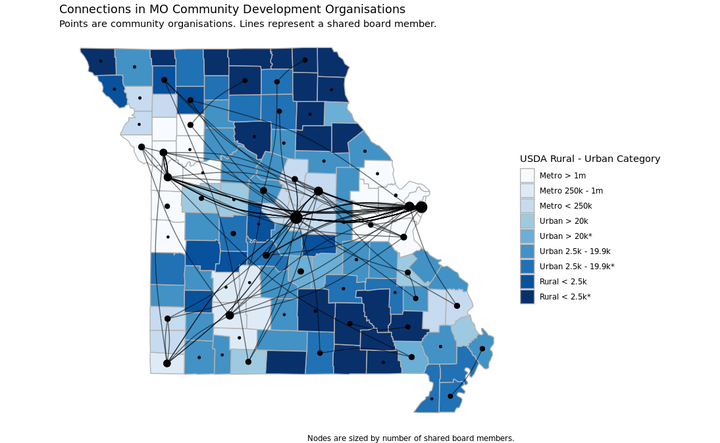Reaching rural: Identifying implicit social networks in community development programmes
 Image credit: Unsplash
Image credit: Unsplash
Abstract
Exogenous, endogenous, neo-endogenous, and more recently, nexogenous development have been prominent theories of rural development in Europe over the past several decades. While these theories of rural development are well known in Europe, they are less prominent in the US. This paper explores how they might be applied in a US context, through a study of the operation and network relationships of not-for-profit, community development organisations in the U.S. state of Missouri. This paper introduces a conceptual approach to classifying rural development networks as explicit and implicit networks. Results show that pillars of neo-endogenous development, namely the importance of social networks, can be identified through an easily replicable and quantitative research design. An implicit network graph is realised which shows promise for serving as a conduit for social and human capital into rural areas. It is argued that implicit networks have potential to be leveraged by rural communities in pursuit of sustainable development efforts.